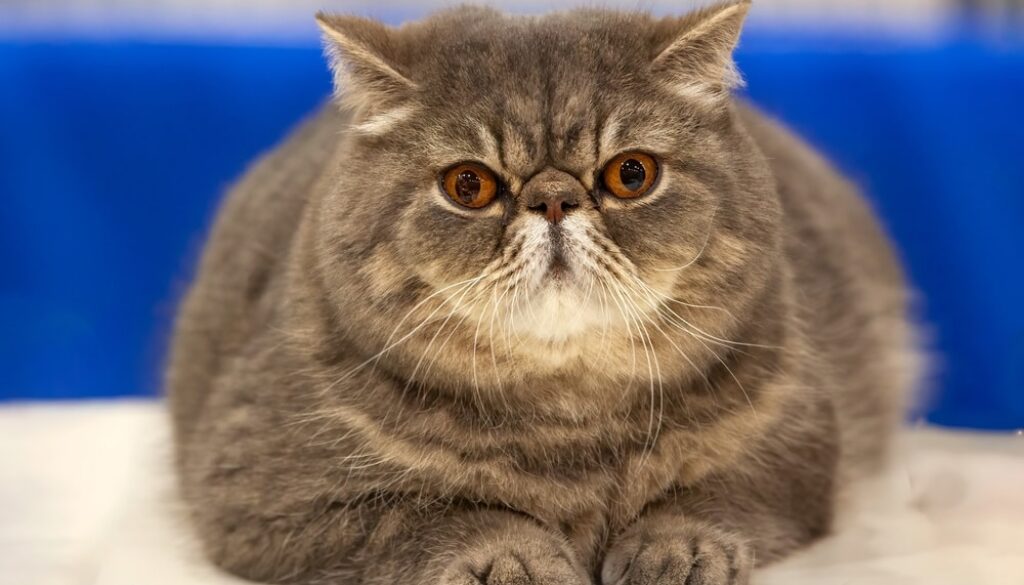Exotic Shorthair Health Issues: Common Conditions and Preventive Care
Exotic Shorthair cats are beloved for their cute, squished faces and plush fur. However, like all pets, they can be prone to certain health issues. In this article, we will explore the common health conditions that affect Exotic Shorthairs and provide tips on how to prevent them.
Overview of Exotic Shorthair Cats
Exotic Shorthair cats are a breed known for their friendly and laid-back personalities. They are often referred to as the “lazy man’s Persian” due to their similar appearance to Persian cats but with a shorter, easier-to-maintain coat. These cats have a compact, muscular body with a broad head and large, expressive eyes. They have a sweet and gentle disposition, making them great companions for families and individuals alike.
Exotic Shorthairs are a result of breeding Persian cats with American Shorthairs to create a cat with the Persian’s distinctive look but with a short, dense coat. Their plush fur comes in a variety of colors and patterns, ranging from solid colors to tabby and calico patterns. Despite their shorter coat, they still require regular grooming to prevent matting and keep their fur in top condition.
These cats are known for their loving and affectionate nature, enjoying being around their human companions and cuddling up for a nap. They are generally good with children and other pets, making them a popular choice for multi-pet households. Exotic Shorthairs are not overly vocal, but they may “talk” to their owners with soft meows and chirps.
Common Health Issues in Exotic Shorthairs
Exotic Shorthair cats, like any other breed, can be prone to certain health issues. Some common health problems that Exotic Shorthairs may face include:
- Dental Health: Due to their brachycephalic (flat-faced) features, Exotic Shorthairs are susceptible to dental problems such as periodontal disease and gingivitis. Regular dental check-ups and teeth cleanings are essential to prevent these issues.
- Obesity: Exotic Shorthairs have a tendency to gain weight easily, which can lead to health problems like diabetes and joint issues. Feeding a balanced diet, monitoring portion sizes, and providing regular exercise can help prevent obesity in these cats.
- Respiratory Issues: Their flattened faces can predispose Exotic Shorthairs to respiratory issues such as labored breathing, snoring, and even breathing difficulties. Keeping the air quality clean and providing a stress-free environment can help alleviate these problems.
- Eye Problems: Exotic Shorthairs are prone to eye conditions such as cherry eye (prolapsed gland of the third eyelid) and eye ulcers. Regular eye exams and keeping the eyes clean can help prevent and treat these issues.
- Skin Conditions: The dense coat of Exotic Shorthairs can make them susceptible to skin problems like dermatitis and fungal infections. Regular grooming and using gentle shampoos can help maintain skin health.
- Urinary Tract Health: Exotic Shorthairs may be prone to urinary tract infections or blockages. Providing fresh water, a clean litter box and a balanced diet can help prevent these issues.
- Reproductive Health: Female Exotic Shorthairs may face complications during pregnancy and birth. Spaying or neutering your cat can help prevent reproductive health issues and unwanted litters.
- Parasites: Like all cats, Exotic Shorthairs can be affected by internal parasites such as worms and external parasites like fleas and ticks. Regular parasite prevention is essential to keep your cat healthy.
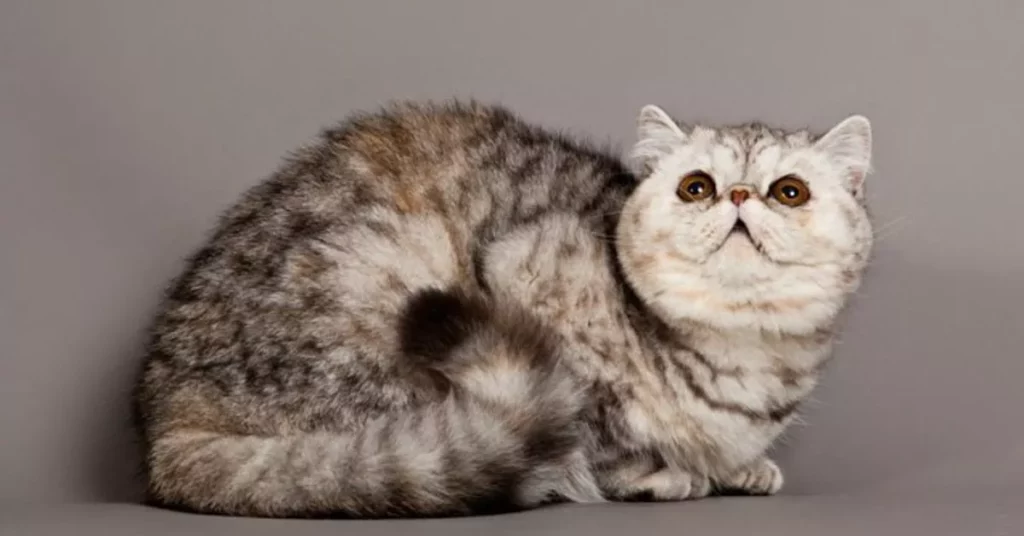
Preventive Care Tips for Exotic Shorthairs
To help prevent these common health issues in Exotic Shorthairs, consider the following preventive care tips:
- Regular Veterinary Check-ups: Schedule regular veterinary exams to monitor your cat’s overall health and catch any potential issues early.
- Balanced Diet: Feed your Exotic Shorthair a high-quality, balanced diet to maintain a healthy weight and provide essential nutrients.
- Dental Care: Brush your cat’s teeth regularly and provide dental treats or toys to help keep their teeth clean and prevent dental problems.
- Regular Exercise: Engage your cat in regular play and exercise to prevent obesity and keep them physically and mentally stimulated.
- Grooming: Brush your cat’s coat regularly to prevent matting and skin issues. Trim their nails and clean their ears as needed.
- Stress Management: Provide a safe and stress-free environment for your Exotic Shorthair to reduce the risk of respiratory issues and other health problems.
Dental Health
Dental health is a crucial aspect of caring for your Exotic Shorthair cat. Due to their brachycephalic (flat-faced) features, Exotic Shorthairs are more prone to dental issues such as periodontal disease and gingivitis. These dental problems can lead to pain, tooth loss, and even systemic health issues if left untreated.
To maintain your Exotic Shorthair’s dental health, consider the following tips:
- Regular Dental Check-ups: Schedule regular dental check-ups with your veterinarian to monitor your cat’s oral health. Professional cleanings may be recommended to remove tartar and plaque buildup.
- Brushing Your Cat’s Teeth: Get your cat used to having their teeth brushed from a young age. Use a cat-specific toothbrush and toothpaste to clean their teeth regularly, ideally daily or at least a few times a week.
- Dental Treats and Toys: Provide dental treats and toys designed to promote dental health. These can help reduce plaque and tartar buildup and keep your cat’s teeth clean between brushings.
- Monitor Your Cat’s Eating Habits: Pay attention to how your cat eats and if they show any signs of dental pain or discomfort. Changes in eating habits, drooling, pawing at the mouth, or bad breath can indicate dental problems that require veterinary attention.
- Limit Sugary Treats: Avoid feeding your cat sugary treats or human foods that can contribute to dental issues. Stick to a balanced, high-quality diet approved by your veterinarian.
By prioritizing your Exotic Shorthair’s dental health and implementing preventive care measures, you can help keep their teeth and gums in good condition and prevent dental problems in the long run.
Obesity
Obesity is a common issue in Exotic Shorthair cats, as they have a tendency to gain weight easily. Obesity can lead to various health problems, including diabetes, joint issues, and decreased quality of life. Preventing obesity in your cat is essential for their overall health and well-being.
Here are some tips to help prevent obesity in your Exotic Shorthair:
- Balanced Diet: Feed your cat a balanced diet that is appropriate for their age, weight, and activity level. Avoid overfeeding and monitor portion sizes to prevent excessive calorie intake.
- Regular Exercise: Provide opportunities for your cat to stay active and engage in playtime regularly. Interactive toys, climbing structures, and interactive play sessions can help keep your cat moving and prevent weight gain.
- Monitor Your Cat’s Weight: Keep track of your cat’s weight and body condition score. Your veterinarian can help assess your cat’s weight status and provide guidance on weight management if needed.
- Avoid Free-Feeding: Instead of leaving food out all day for your cat to graze on, feed them scheduled meals to control portion sizes and prevent overeating.
- Healthy Treats: Choose nutrient-rich, low-calorie treats as rewards for your cat instead of high-calorie options. Consider using food puzzles or interactive feeders to make treat time more engaging and mentally stimulating.
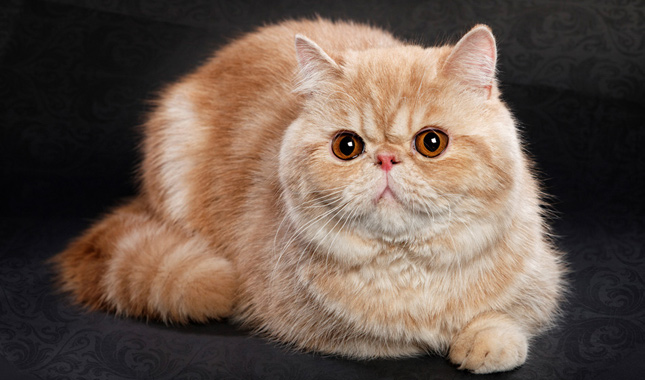
Respiratory Issues
Exotic Shorthair cats are known for their brachycephalic (flat-faced) features, which can predispose them to respiratory issues. These cats may experience difficulties breathing, snoring, and other respiratory problems due to their anatomical structure. It’s essential to be aware of common respiratory issues in Exotic Shorthairs and take preventive measures to support their respiratory health.
Here are some tips to help manage respiratory issues in Exotic Shorthair cats:
- Clean Air Quality: Ensure your home environment has good air quality by minimizing allergens, dust, and irritants that can affect your cat’s respiratory system. Use air purifiers or humidifiers to maintain clean air.
- Regular Veterinary Check-ups: Schedule routine veterinary check-ups to monitor your cat’s respiratory health and address any concerns promptly. Your veterinarian can recommend treatment options or lifestyle changes to help manage respiratory issues.
- Stress Management: Reduce stress factors in your cat’s environment, as stress can exacerbate respiratory problems. Provide a calm and soothing living space for your Exotic Shorthair to help minimize respiratory issues.
- Regular Grooming: Keep your cat’s coat clean and free of mats, as a well-maintained coat can prevent respiratory irritants from accumulating. Regular grooming can also help prevent skin issues that may contribute to respiratory problems.
- Adjusting Lifestyle: Avoid exposing your cat to extreme temperatures, strong scents, smoke, or other irritants that can trigger respiratory issues. Maintain a comfortable temperature and keep your cat away from potential respiratory irritants.
By being proactive in managing respiratory issues in Exotic Shorthairs and creating a respiratory-friendly environment, you can help support your cat’s respiratory health and overall well-being.
Eye Problems
Exotic Shorthair cats are prone to various eye conditions, including cherry eye (prolapsed gland of the third eyelid), eye ulcers, and other issues that can affect their eye health. Regular eye care and monitoring can help prevent or detect eye problems early, allowing for timely intervention and treatment.
Here are some tips to help manage and prevent eye problems in Exotic Shorthair cats:
- Regular Eye Exams: Schedule regular eye exams with your veterinarian to monitor your cat’s eye health and address any concerns promptly. Early detection of eye problems can help prevent complications and ensure optimal eye health.
- Gentle Eye Cleaning: Clean your cat’s eyes regularly with a damp, soft cloth to remove any discharge or debris that can irritate the eyes. Be gentle and cautious when cleaning around the eye area to avoid causing discomfort.
- Monitor for Signs of Eye Issues: Watch for symptoms such as redness, swelling, discharge, squinting, excessive tearing, or changes in the appearance of the eyes. Contact your veterinarian if you notice any concerning signs of eye problems.
- Provide a Balanced Diet: A nutritious diet rich in essential nutrients can support your cat’s overall health, including their eye health. Consult with your veterinarian to ensure your cat’s diet meets their specific nutritional needs.
- Avoid Harsh Chemicals: Keep cleaning products, perfumes, and other irritants away from your cat’s eyes to prevent eye irritation and potential eye problems.
By maintaining good eye care practices, monitoring for signs of eye issues, and seeking prompt veterinary attention when needed, you can help protect your Exotic Shorthair cat’s eye health and vision.
Skin Conditions
Exotic Shorthair cats can be prone to skin conditions due to their dense coat and brachycephalic features. Skin problems such as dermatitis, fungal infections, and allergic reactions may affect their skin health. Implementing proper skin care and preventive measures can help maintain your cat’s skin health and prevent skin issues.
Here are some tips to manage and prevent skin conditions in Exotic Shorthair cats:
- Regular Grooming: Brush your cat’s coat regularly to remove loose hair, and debris, and prevent matting. Regular grooming can help distribute natural oils, prevent skin irritation, and maintain a healthy coat.
- Use Gentle Shampoos: When bathing your cat, use a gentle, cat-specific shampoo that is suitable for their sensitive skin. Avoid harsh chemicals or products that can dry out or irritate the skin.
- Monitor Skin Changes: Keep an eye on your cat’s skin for any signs of redness, itching, excessive licking, flakiness, or other abnormalities. Changes in the skin’s appearance or texture may indicate an underlying skin issue that requires veterinary attention.
- Maintain a Clean Environment: Keep your cat’s living environment clean and free of potential irritants or allergens that can trigger skin problems. Regularly wash bedding, clean litter boxes, and vacuum to reduce dust and allergens.
- Nutritious Diet: Provide your cat with a balanced diet that supports their skin health and overall well-being. Essential fatty acids and vitamins can help promote healthy skin and a shiny coat.
- Regular Veterinary Check-ups: Schedule routine veterinary exams to assess your cat’s skin health and address any skin issues promptly. Your veterinarian can provide guidance on skincare and recommend treatment options if needed.
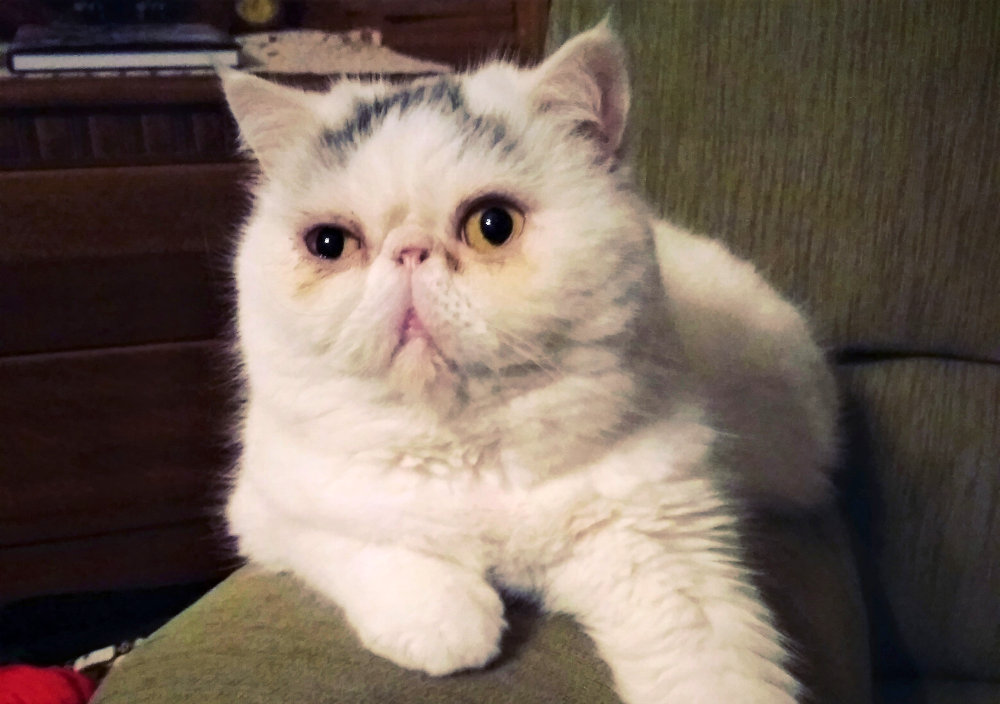
Urinary Tract Health
Urinary tract health is an important aspect of caring for your Exotic Shorthair cat. Like many other cat breeds, Exotic Shorthairs can be prone to urinary tract infections and other urinary issues. Proper hydration, a balanced diet, and regular veterinary check-ups can help maintain your cat’s urinary tract health.
Here are some tips to promote urinary tract health in your Exotic Shorthair:
- Provide Fresh Water: Ensure your cat has access to clean, fresh water at all times to promote proper hydration. Encourage your cat to drink water by using a cat fountain or providing wet food, which has a higher moisture content.
- Balanced Diet: Feed your cat a balanced diet that supports urinary tract health. Consider choosing cat food formulated to support urinary health, which typically contains controlled levels of minerals to reduce the risk of crystal formation.
- Monitor Litter Box Habits: Pay attention to your cat’s litter box habits. Changes in litter box behavior, such as straining to urinate, frequent trips to the litter box, or blood in the urine, may indicate a urinary issue that requires veterinary attention.
- Regular Veterinary Check-ups: Schedule routine veterinary exams to monitor your cat’s urinary tract health. Your veterinarian can perform urinalysis tests, check for signs of urinary issues, and provide guidance on maintaining urinary health.
- Encourage Exercise: Promote regular exercise and playtime to help prevent obesity, which can be a risk factor for urinary tract issues. Physical activity can also support overall health and well-being.
By implementing these tips and staying vigilant about your Exotic Shorthair’s urinary health, you can help prevent urinary tract issues and ensure your cat’s well-being.
Reproductive Health
Reproductive health is an important consideration for Exotic Shorthair cats, especially for intact females and males that have not been spayed or neutered. Female Exotic Shorthairs may experience complications during pregnancy and birth, while male cats can contribute to overpopulation if not sterilized.
Here are some tips for managing reproductive health in Exotic Shorthair cats:
- Spaying or Neutering: Consider spaying or neutering your Exotic Shorthair cat to prevent unwanted litter and contribute to controlling pet overpopulation. Spaying or neutering can also reduce the risk of certain reproductive health issues in cats.
- Consult with Your Veterinarian: If you choose to breed your Exotic Shorthair, consult with your veterinarian and a reputable breeder for guidance on responsible breeding practices and ensuring the health and well-being of the mother and kittens.
- Monitor Pregnancy: If your female cat is pregnant, provide proper prenatal care, including regular veterinary check-ups, a nutritious diet, and a comfortable birthing environment. Be prepared for potential complications and have a plan in place for emergency situations.
- Post-Partum Care: After giving birth, monitor the mother cat and kittens closely for signs of health issues. Provide a warm, quiet, and safe space for the mother and kittens to bond and thrive.
By being proactive about reproductive health and making informed decisions regarding breeding and sterilization, you can help ensure the well-being of your Exotic Shorthair and prevent unnecessary health risks associated with reproduction.
Parasites
Parasites, both internal and external, can pose health risks to Exotic Shorthair cats. Common parasites that can affect cats include worms, fleas, ticks, and ear mites. Regular parasite prevention and prompt treatment can help protect your cat from parasitic infections.
Here are some tips to prevent parasites in your Exotic Shorthair:
- Regular Parasite Prevention: Use veterinary-recommended flea, tick, and worm prevention products to protect your cat from parasites. Follow the recommended dosages and application instructions for effective parasite control.
- Maintain a Clean Environment: Keep your cat’s living environment clean and tidy to reduce the risk of parasitic infestations. Regularly clean bedding, vacuum floors, and groom your cat to prevent the spread of parasites.
- Monitor Outdoor Activities: If your cat goes outdoors, be mindful of the risk of exposure to parasites. Check your cat for ticks and other external parasites after outdoor excursions and consult with your veterinarian about additional preventive measures if needed.
- Regular Veterinary Check-ups: Schedule routine veterinary exams for your cat, which may include parasite screenings and preventive measures. Your veterinarian can recommend the appropriate parasite control products based on your cat’s risk factors and lifestyle.
- Ear Care: Keep your cat’s ears clean and monitor for signs of ear mites or infections. Consult with your veterinarian if you notice excessive scratching, head shaking, or discharge in your cat’s ears.
By implementing these preventive measures and staying proactive about parasite control, you can help protect your Exotic Shorthair cat from parasitic infections and maintain their overall health and well-being.
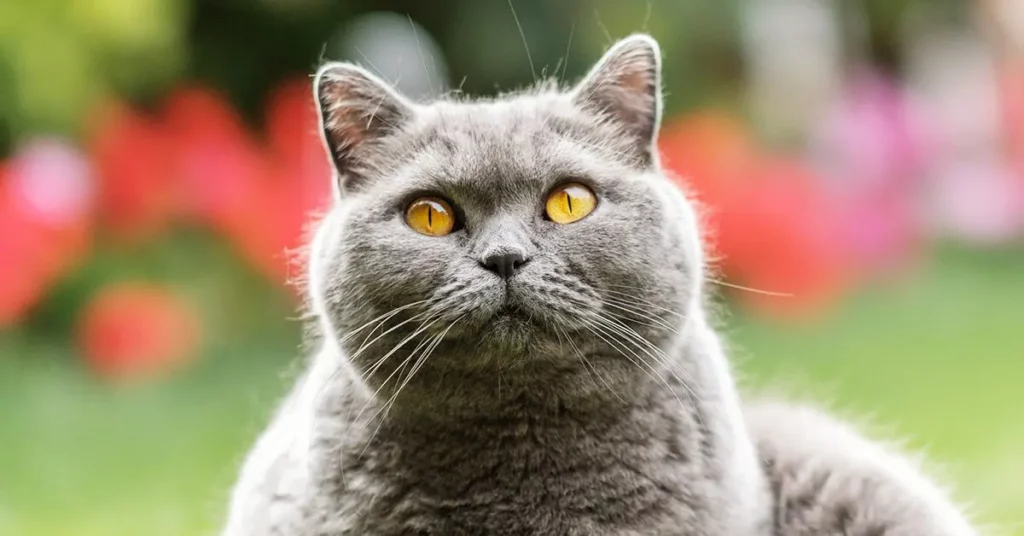
Nutritional Needs
Proper nutrition is essential for the health and well-being of your Exotic Shorthair cat. Providing a balanced diet that meets their specific nutritional needs can support their overall health, skin and coat condition, and prevent obesity. Here are some key nutritional tips for your Exotic Shorthair:
- High-Quality Diet: Choose a high-quality cat food that is appropriate for your cat’s age, weight, and activity level. Look for products that list meat as the first ingredient and provide essential nutrients for feline health.
- Balanced Diet: Ensure your cat’s diet includes a balance of proteins, fats, carbohydrates, vitamins, and minerals. Consult with your veterinarian to determine the right type and amount of food to feed your Exotic Shorthair.
- Portion Control: Monitor your cat’s portion sizes and avoid overfeeding to prevent obesity. Follow the feeding guidelines provided on the cat food packaging and adjust portion sizes based on your cat’s individual needs.
- Hydration: Encourage adequate water intake by providing fresh water at all times. Wet food can also contribute to your cat’s overall hydration.
- Consult Your Veterinarian: If you have any questions or concerns about your cat’s nutritional needs, consult with your veterinarian for personalized recommendations and guidance.
By focusing on your Exotic Shorthair’s nutritional needs and providing a balanced diet, you can help support their health and well-being throughout their life.
Grooming Tips
Grooming is an important aspect of caring for your Exotic Shorthair cat, as their dense coat requires regular maintenance to prevent mats, hairballs, and skin issues. Here are some grooming tips to keep your Exotic Shorthair looking and feeling their best:
- Brushing: Regularly brush your cat’s coat to remove loose hair, prevent mats, and distribute natural oils for a healthy coat. Use a soft-bristled brush or grooming mitt suitable for your cat’s coat type.
- Bathing: While Exotic Shorthairs typically require less frequent bathing than long-haired breeds, occasional baths can help keep their coat clean and shiny. Use a cat-specific shampoo and rinse thoroughly to avoid skin irritation.
- Ear Cleaning: Check your cat’s ears regularly for dirt, wax buildup, or signs of infection. Gently clean the outer ear with a damp cotton ball or vet-approved ear cleaner to maintain ear hygiene.
- Nail Trimming: Trim your cat’s nails regularly to prevent overgrowth and reduce the risk of accidental scratches. Use cat nail clippers and be cautious not to cut the quick (blood vessel) in the nail.
- Dental Care: Brush your cat’s teeth regularly to prevent dental issues and maintain oral hygiene. Use a cat-specific toothbrush and toothpaste recommended by your veterinarian.
By incorporating regular grooming into your Exotic Shorthair’s care routine, you can help keep their coat, skin, and overall grooming needs in top condition.
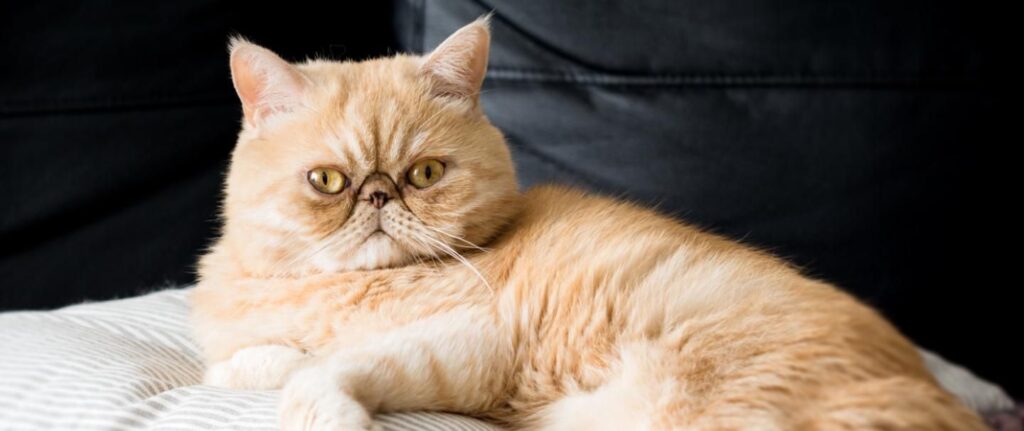
Exercise Requirements
Exotic Shorthair cats benefit from regular exercise to maintain their physical health, mental stimulation, and weight management. While Exotic Shorthairs are known for their relaxed and laid-back nature, engaging them in play and physical activity is essential for their well-being. Here are some tips for meeting your Exotic Shorthair’s exercise requirements:
- Interactive Play: Engage your cat in interactive play sessions using toys that stimulate their natural instincts, such as hunting and chasing. Laser pointers, feather wands, and puzzle toys can provide mental and physical exercise.
- Cat Furniture: Provide your Exotic Shorthair with cat trees, scratching posts, and climbing structures to encourage exercise and provide opportunities for climbing and jumping.
- Rotate Toys: To keep your cat entertained and motivated, rotate their toys regularly and introduce new toys to prevent boredom.
- Regular Playtime: Set aside dedicated playtime each day to engage with your cat and provide opportunities for exercise. Aim for multiple short play sessions throughout the day to keep your cat active.
- Outdoor Enclosures: Consider providing a secure outdoor enclosure or catio for your Exotic Shorthair to explore the outdoors safely and enjoy fresh air and sunlight.
By incorporating regular exercise and play into your Exotic Shorthair’s routine, you can help keep them physically and mentally stimulated, maintain a healthy weight, and enhance their overall well-being.
Conclusion
Caring for an Exotic Shorthair cat requires attention to their specific needs, including proper nutrition, regular grooming, exercise, and preventive healthcare measures. By focusing on aspects such as dental health, respiratory issues, eye problems, skin conditions, urinary tract health, reproductive health, and parasite prevention, you can help ensure the well-being of your beloved Exotic Shorthair.
Providing a high-quality diet, maintaining a grooming routine, meeting exercise requirements, and addressing any health concerns promptly through veterinary care are essential components of responsible pet ownership. By implementing these tips and guidelines, you can nurture a happy, healthy, and thriving relationship with your Exotic Shorthair cat for years to come.
Also, Read:
